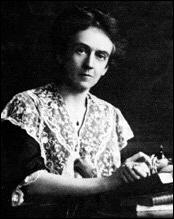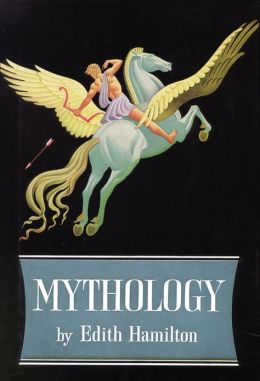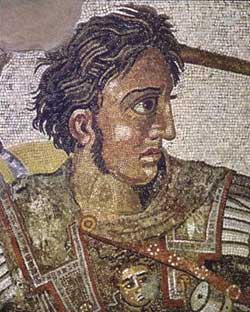Week10
☆Greek chours
Dramatic function
Some historians argue that the chorus was itself considered to be an actor.Scholars have considered Sophocles to be superior to Euripides in his choral writing. Of the two, Sophocles also won more dramatic contests. His chorus passages were more relevant to the plot and more integrated in tragedies, where as the Euripidean choruses seemingly had little to do with the plot and were often bystanders. Aristotle stated in his Poetics:"The chorus too should be regarded as one of the actors; it should be an integral part of the whole, and share in the action, not in the manner of Euripides but of Sophocles".The chorus represents, on stage, the general population of the particular story, in sharp contrast with many of the themes of the ancient Greek plays which tended to be about individual heroes, gods, and goddesses. They were often the same sex as the main character.
In Aeschylus' Agamemnon, the chorus comprises the elderly men of Argos, whereas in Euripides' The Bacchae, they are a group of eastern bacchantes, and in Sophocles' Electra, the chorus represents the women of Argos. In Aeschylus' The Eumenides, however, the chorus takes the part of a host of avenging Furies
☆Golden fleece
In Greek mythology, the Golden Fleece is the fleece of the gold-hair winged ram, which was held in Colchis. The fleece is a symbol of authority and kingship. It figures in the tale of the hero Jason and his band of Argonauts, who set out on a quest for the fleece by order of King Pelias, in order to place Jason rightfully on the throne of Iolcus in Thessaly. Through the help of Medea, they acquire the Golden Fleece. The story is of great antiquity and was current in the time of Homer (eighth century BC). It survives in various forms, among which the details vary.
→Mary had a little lamb(lyrics)
Mary had a little lamb, little lamb,
little lamb, Mary had a little lamb
whose fleece was white as snow.
And everywhere that Mary went
Mary went, Mary went, everywhere
that Mary went
The lamb was sure to go.
He followed her to school one day,
school one day, school one day,
He followed her to school one day,
Which was against the rules,
It made the children laugh and play,
laugh and play, laugh and play,
It made the children laugh and play,
To see a lamb at school.
And so the teacher turned it out,
turned it out, turned it out,
And so the teacher turned it out,
But still it lingered near,
He waited patiently about,
ly about, ly about,
He waited patiently about,
Till Mary did appear.
"Why does the lamb love Mary so?"
love Mary so?" love Mary so?"
"Why does the lamb love Mary so?"
The eager children cried.
"Why, Mary loves the lamb, you know,"
lamb, you know," lamb, you know,"
"Why, Mary loves the lamb, you know,"
The teacher did reply
☆Edith Hamilton

An American educator and author who was "recognized as the greatest woman Classicist." She was 62 years old when The Greek Way, her first book, was published in 1930. It was instantly successful, and is the earliest expression of her belief in "the calm lucidity of the Greek mind" and "that the great thinkers of Athens were unsurpassed in their mastery of truth and enlightenment."n 1957, when the Book-of-the-Month Club selected The Greek Way (1930) as a featured book, it enhanced her efforts at directing the American mind towards Ancient Greece, despite it having been published twenty-seven years earlier. Moreover, by then, she already had published other books, among them The Roman Way (1932), Mythology (1942), and The Echo of Greece (1957); to date, at the high school and university levels, Mythology remains the premier introductory text about its subject. The New York Times has described her as the Classical Scholar who "brought into clear and brilliant focus the Golden Age of Greek life and thought ... with Homeric power and simplicity in her style of writing".
☆Aristotle
|
|
A Greek philosopher and scientist born in the city of Stagira, Chalkidice, on the northern periphery of Classical Greece. His father, Nicomachus, died when Aristotle was a child, whereafter Proxenus of Atarneus became his guardian. At seventeen or eighteen years of age, he joined Plato's Academy in Athens and remained there until the age of thirty-seven (c. 347 BC). His writings cover many subjects – including physics, biology, zoology, metaphysics, logic, ethics, aesthetics, poetry, theater, music, rhetoric, linguistics, politics and government – and constitute the first comprehensive system of Western philosophy. Shortly after Plato died, Aristotle left Athens and, at the request of Philip of Macedon, tutored Alexander the Great beginning in 343 BC. |
☆Alexander the Great
|
|
A king (basileus) of the Ancient Greek kingdom of Macedon and a member of the Argead dynasty. Born in Pella in 356 BC, Alexander succeeded his father, Philip II, to the throne at the age of twenty. He spent most of his ruling years on an unprecedented military campaign through Asia and northeast Africa, and by the age of thirty he had created one of the largest empires of the ancient world, stretching from Greece to northwestern India.He was undefeated in battle and is widely considered one of history's most successful military commanders. |
√Scotch may refer to:
- Scotch (adjective), a largely-obsolescent adjective meaning "having to do with Scotland"
- Scotch whisky, a whisky made in Scotland, which outside Scotland is commonly abbreviated as "Scotch."
· extra--- – beyond what is due, usual, expected, or necessary;additional
Example : extradition(n.)引渡;extrajudicial(a.)司法程序外的
;extraterrestrial(a.)外星球的;extravagent(a.)奢侈的





 留言列表
留言列表


